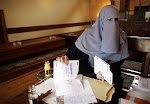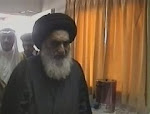JEDDAH: Noor wept silently when she remembered her father who died seven years ago. The 35-year-old divorcee is a Yemeni national but was born and raised in Saudi Arabia. She has been living with no identification papers for the past year and four months.
“I can’t work to earn a living. The owner of the basement I live in will kick me out at the end of the month,” she said.
Noor is the youngest of eleven siblings. She got married to a Yemeni 17 years ago. She had a severe case of hernia and gallbladder stones. Her 38-year-old husband refused to treat her because the operation was costly. He used to beat her, abandon her and does not provide her with the basic needs of life.
“I had two miscarriages because of his violence. My health deteriorated and he didn’t show me any mercy,” said Noor. “I had to leave the house. I couldn’t take it anymore.”
A mother of four boys and a girl, Noor walked out of her husband’s house three years ago. Her husband refused to divorce her, leaving her with no choice but to ask for khula, a form of divorce in Shariah where the woman secures her divorce paying financial compensation to the husband that begins with a reimbursement of the dowry but often includes what the husband sees as his additional expenses for the marriage.
The judge ordered SR10,000 as the compensation for the husband. People of good will lent her SR7,500. “I couldn’t pay them back until now. I had to borrow the rest of the money from the judge. I can’t take my divorce papers until I pay him SR2,500,” said Noor.
Due to divorce procedures and her inability to pay her debt to the judge, Noor cannot transfer her sponsorship to her older brother — who has Saudi citizenship.
He told her he does not want to sponsor her. He would deport her to Yemen and make her live with her brother’s wife there. “But I don’t know anyone in Yemen and my children live here in Makkah,” said Noor.
Arab News contacted a source at the Yemeni Consulate in Jeddah. The source, who asked not to be named, said he intervened in Noor’s marriage when she was having problems. It was her desire to get a divorce because things were not working out, he said. As for her brother deporting her, he said it is not his right.
“Her brother has no right to deport her. She must approach the Saudi authorities since her brother is Saudi,” he said.
Noor’s brother, who is in his late 40s, expressed his dissatisfaction with and disapproval of her “actions and attitude” when asked about his decision of deporting her to Yemen.
“What do you think of someone who divorced her husband and now wants to work? You women, what do you think?” said Noor’s brother in a coarse, shrill voice. “She not only is guilty, but she’s responsible for all her actions.”
Noor stopped school prior to getting married. She studied through the sixth grade. Due to her determination and a little computer skills, she managed to land jobs with advertising and print agencies and charitable institutions. But when her iqama expired, no one was interested anymore in employing her.
“I don’t want money. I want someone to give me an identity. I’m one of this country’s citizens,” said Noor, trembling with anguish. “I’ve been patient for so long. I didn’t do anything to deserve this.”
See how merciful muslims are to their own people? If I had enough money I would sponsor her here in the US.
12 years ago

























